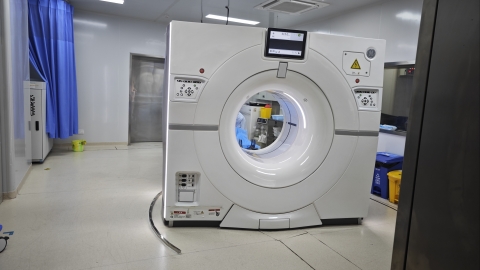Can a brain CT scan detect cerebral infarction?
Generally, if a few hours have passed since the onset of symptoms, the condition can usually be detected. However, within the first few hours after the onset of cerebral infarction, it typically cannot be identified. Detailed explanation is as follows:

If several hours have passed since the onset of symptoms, especially after 24 hours, a brain CT scan generally can reveal the infarcted area. At this time, the infarcted region usually appears as a low-density shadow due to cerebral ischemia and necrosis. Doctors can determine whether cerebral infarction has occurred and assess its specific condition by observing the location, shape, and size of these low-density shadows.
Within the first few hours after the onset of cerebral infarction, morphological changes in brain tissue may not yet be apparent, and a brain CT scan may fail to detect any abnormalities. During the first 6 hours after onset, cerebral CT may not clearly show the infarcted lesion, increasing the likelihood of missed diagnosis. For patients requiring emergency treatments such as thrombolytic therapy in the ultra-early stage, the diagnostic value of brain CT is relatively limited, and additional tests may be needed to confirm the diagnosis.
If symptoms or signs suggestive of cerebral infarction occur, prompt medical attention should be sought, and examinations and treatments should be conducted following the doctor's recommendations. Additionally, high-risk groups such as elderly individuals, diabetic patients, and patients with hypertension should undergo regular physical exams and relevant tests to enable early detection and treatment of cerebral infarction.






